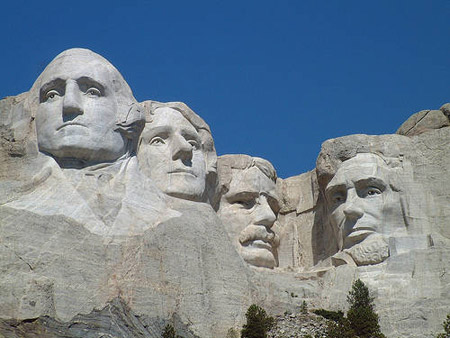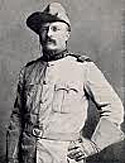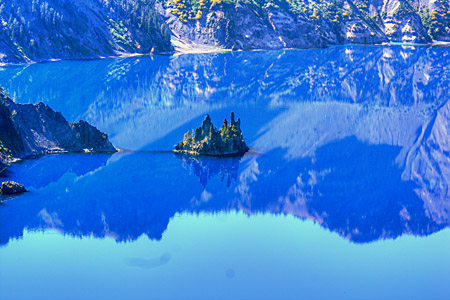
Presidents Washington, Jefferson, Teddy Roosevelt and Lincoln Honored on Mt. Rushmore
By the Never-Bored RVers
If asked, “Who was Teddy Roosevelt,” most Americans might say, “Oh, he was on a horse in movies about a “Night at the Museum” or he’s the guy who has a stuffed bear named after him. More informed Americans remember him as the 26th president of our nation and a few realize that he is the most contemporary of the four presidents depicted on Mt. Rushmore.
The more you learn about Teddy Roosevelt, the more you will appreciate him and understand that probably no other individual in American history has shaped so much of our culture and accomplished so much. For instance, he is he only person to earn both the Nobel Prize for Peace AND the Congressional Medal of Honor for bravery.
What does this have to do with RVing? As you travel through America visiting our National Parks, you will often hear mentioned that it was President Theodore Roosevelt who stepped in to set aside and protect uniquely beautiful areas for future generations to enjoy.
When Congress refused to act to preserve many areas because of influence from commercial interests, Teddy (or “The Colonel,” as he preferred) used his  presidential powers to establish protection until Congress would act. He set the standard for national protection of some of America’s most pristine lands that were in line for decimation.
presidential powers to establish protection until Congress would act. He set the standard for national protection of some of America’s most pristine lands that were in line for decimation.
Here are some of the areas he was able to preserve: As chief executive from 1901 to 1909, he signed legislation establishing five national parks: Crater Lake in Oregon; Wind Cave in South Dakota; Sullys Hill in North Dakota (later redesignated a game preserve); Mesa Verde in Colorado; and Platt, Oklahoma (now part of Chickasaw National Recreation Area). By the end of 1906 he had proclaimed four national monuments: Devils Tower, Wyoming; El Morro, New Mexico; and Montezuma Castle and Petrified Forest, both in Arizona.
He designated a large portion of the Grand Canyon as a national monument in 1908. By the end of his term he had reserved six predominantly cultural areas and twelve predominantly natural areas in this manner.
The name “Recreational Vehicle” implies that you use your RV for recreation, which also implies out-of-doors and visits to National Forests and National Parks. When I decided that you might find the story of Teddy Roosevelt’s life interesting, I consulted numerous sites on the internet to get information, and it didn’t take long before I was overwhelmed with a topic that, like its main character, is larger than life.
I wrote, then abridged, abbreviated, edited, and still had more information than one blog article could accommodate, so I’ve split this into two parts, with Part 2 appearing in a few days.
Let’s get on with it!
When the Spanish-American War was declared in 1898, Roosevelt resigned as assistant secretary of the Navy Department and helped recruit cowboy volunteers from the Western Territories and Ivy Leaguers from New York, forming the First U.S. Volunteer Cavalry Regiment, which became known as the “Rough Riders.”
Under his leadership, the Rough Riders became famous for dual charges up Kettle Hill and San Juan Hill on July 1, 1898. The regiment’s horses had been left behind because transport ships were in short supply, so Roosevelt was the only one with a horse. During the heat of battle, he rode back and forth between rifle pits at the front of the advance, which he directed in absence of any orders from superiors. He was forced to walk up the last part of Kettle Hill on foot due to barbed wire and after his horse tired.
(Roosevelt was nominated for the Medal of Honor after the battle, but it was denied him until 2001 — and his eldest son, Brigadier General Theodore Roosevelt, Jr., received the Medal of Honor for heroism at the Battle of Normandy in 1944. The Roosevelts thus became one of only two father-son pairs to receive this honor.)
President Theodore Roosevelt signed into law the American Antiquities Act of 1906, which allows the president to declare national monuments at his discretion. Using it, he set aside 18 national monuments. Congress, the only body with the power to create national parks, established five national parks, which Roosevelt signed into law. He also played a significant role in the creation of 150 National Forests, and, in total, was instrumental in the conservation of approximately 230 million acres of American soil that comprise various parks and other federal projects
 Meanwhile, Roosevelt was the force behind the completion of the Panama Canal; he sent out the Great White Fleet to display American power, and he negotiated an end to the Russo-Japanese War, for which he became the first American to win the Nobel Prize for Peace.
Meanwhile, Roosevelt was the force behind the completion of the Panama Canal; he sent out the Great White Fleet to display American power, and he negotiated an end to the Russo-Japanese War, for which he became the first American to win the Nobel Prize for Peace.
If you have read plaques at Mt. Rushmore about Teddy, you’ve begun to appreciate some of his other achievements. In my history studies in school, I often came across his name associated with a variety of topics, but it didn’t all start coming together until I was in the Black Hills. And, by the way, just the story of why and how Mt. Rushmore was carved makes very interesting reading.
It’s not possible to wrap up this article about The Colonel quickly – too many things to mention, even briefly, so I’ll finish up in Part 2 with a few more milestones in Teddy Roosevelt’s life.

The Phantom Ship in Crater Lake National Park, Oregon, Reaches 168 Feet into the Sky -- AMAZING!
*Information and photographs for this article were gathered by accessing about a dozen websites, including Wikipedia and the National Geographic Society. I took the Crater Lake photo last month.
From the “Never-Bored RVers,” We’ll see you on down the road.
Pingback: best medicine for longer intercourse
yet
I enjoy reading the article the thoughts and ideas are clear and the topic is interesting.
dna freight
Demitry Temesov
bpshand
Spam alert…
max98
Van Insurance Online
bpshand
To Robert,
As the Zanders pointed out, the quote about Indians was from Teddy, not from me. I felt it was important to show a pretty negative characteristic among the glowing reviews. Their point about regarding a person in the culture of his time has merit. Jefferson owned slaves but was still great in many ways.
I also should point out that I was being sarcastic when I said at the end “Good work, Ted”! I should know better than to try to convey subtle sarcasm in writing.
Art Stebes
I think the comment about TR being a socialist is way off base, he did however understand if this country was not a good place for all of us to live in it wouldn’t be a good place for any of us. Remember when he was President, before World War I, many of the huge industrial and agricultural working class worked six or seven days a week, frequently for ten or more hours a day in appalling working conditions, often for starvation wages. He saw government as the “steward of the people” with a role to provide a level playing field.
He was one of the most erudite of our presidents (John Adams and Woodrow Wilson being two others) and a prolific author. As a soldier, cowboy, explorer, and renown natural historian he not only wrote about American History but his own fascinating life. He has been said to not only be our first president of the twentieth century, but our first president to live in the twentieth century.
Manuel Enos
You forgot to mention that he was also a Social Progressive who believed in the Socialist outlook of wealth….There is alot to admire about TR but there is also alot to really take a hard look at…He definitely believed in big government and that big government should control all aspects of
Barry & Monique Zander
In response to Robert in the previous comment, those are not the sentiments of bpshand but a quote from Teddy Roosevelt’s book, I saw that comment about Indians and other bigoted remarks that Roosevelt is quoted as saying. I don’t want to try to defend him, but as you know, our culture has evolved over the years so that he undoubtedly wouldn’t have said that if he were living in the past 30 years. Teddy Roosevelt also said something like, “We can’t send Negroes back to Africa, so we should judge each on his own merits.” That was pretty radical back then.
In our travels, we have immersed ourselves in Indian history and traditions — perhaps superficially, but with sincerity. We understand that the flaw in most of the treaties was that the Indians did not consider land something that they or the white man could own — it was only for our use. That put many of the Indian nations at a big disadvantage when negotiating treaties.
The RV blogs are, thankfully, not meant to be a political soap box — we get enough of that in the news.
That statement about the Indians was one of the things I was alluding to when I added the paragraph about people in political life having supporters and detractors.
Barry Zander
robert
bpshand that is the most stupid thing i have ever heard. What is your origan do you claim to be American. The Indian is the only true American.I am offended i bet if we checked you out it would not be so nice.You are in their country My 2 cents
robert
bpshand that is so biggot and stupid thing i have ever heard. What is your origan do you claim to be american. The indian is the only true American.I am offended i bet if we checked you out it would not be so nice.My openion.
butterbean carpenter
Howdy Barry & Monique,
Thank you for all of your work on this article.. I enjoy reading about President Roosevelt and his work for the American people.. In fact I enjoy ALL of your
articles and travel stories..
Vickie
Thanks for the great article. I think I’ll call my grandkids and see what they are learning in school about Teddy Roosevelt…beyond the fact that he was one of our Presidents. I often wonder how much of the history that we learned while in school is still being taught. I’m a big believer that you learn from history. Well…some of us do:-)
bpshand
Theodore Roosevelt, Chapter I: Ranching in the Bad Lands, Hunting Trips of a Ranchman, 1885
“I suppose I should be ashamed to say that I take the Western view of the Indian. I don’t go so far as to think that the only good Indians are dead Indians, but I believe nine out of every ten are, and I shouldn’t like to inquire too closely into the case of the tenth.”
Roosevelt’s The Winning of the West contains several false or unsupported claims. Among them:
That the US was “generous” to the Indians, paying them many times what their land was worth.
That the Indians broke as many treaties as the white men did.
That they broke treaties at all without provocation.
That just and honorable nations can operate by breaking treaties whenever they choose.
That international law and morality don’t apply to indigenous people.
Good work, Ted!
Nancy Walters
Thanks for this interesting article. As someone who has worked for the National Park Service and the U.S. Fish and Wildlife Service, I have a deep appreciation for Roosevelts foresight in protecting wildlands and national treasures. You mentioned the many National Parks and Monuments, but he was also the pioneering force to estabalish National Wildlife Refuges. During his presidency, over 50 were established. Today the number of refuges has swollen to over 400. Now, if we can only continue to protect these lands in the manor in which they were established.
catchesthewind
The only flaw in an otherwise great article was the use of the term Congressional Medal of Honor. This is a military award and the correct and proper term is—the Medal of Honor—This is the military title and the only title that matters. The only concern that congress has is that it is the final approving authority.
ft-rver
Much better than my photo!
Did you take the heightening of blues to the extreme enhancement?
Jim Guld
Bully!
North Dakota is home to the TR National Park. We visited there this summer and decided we need to return.
The other great President for RVers was Eisenhower. His interstates make it easy for us to get from place to place.